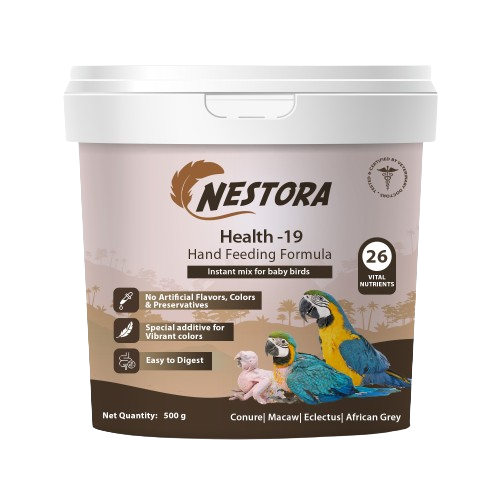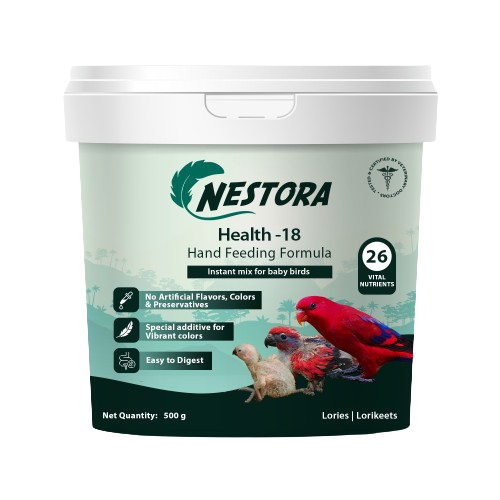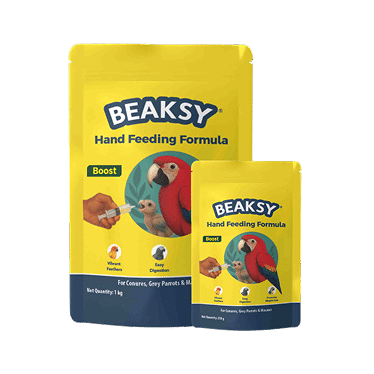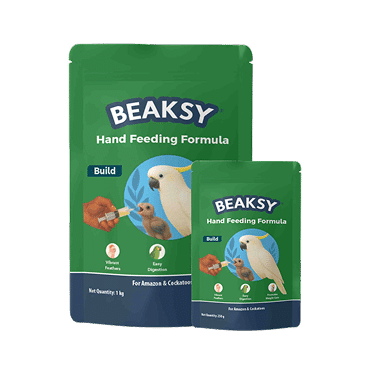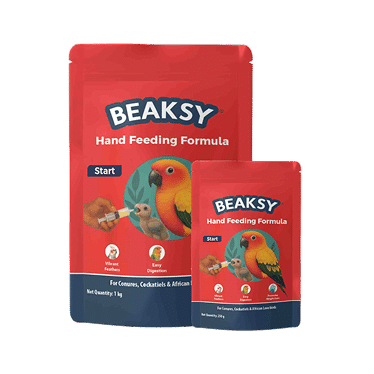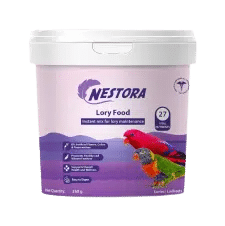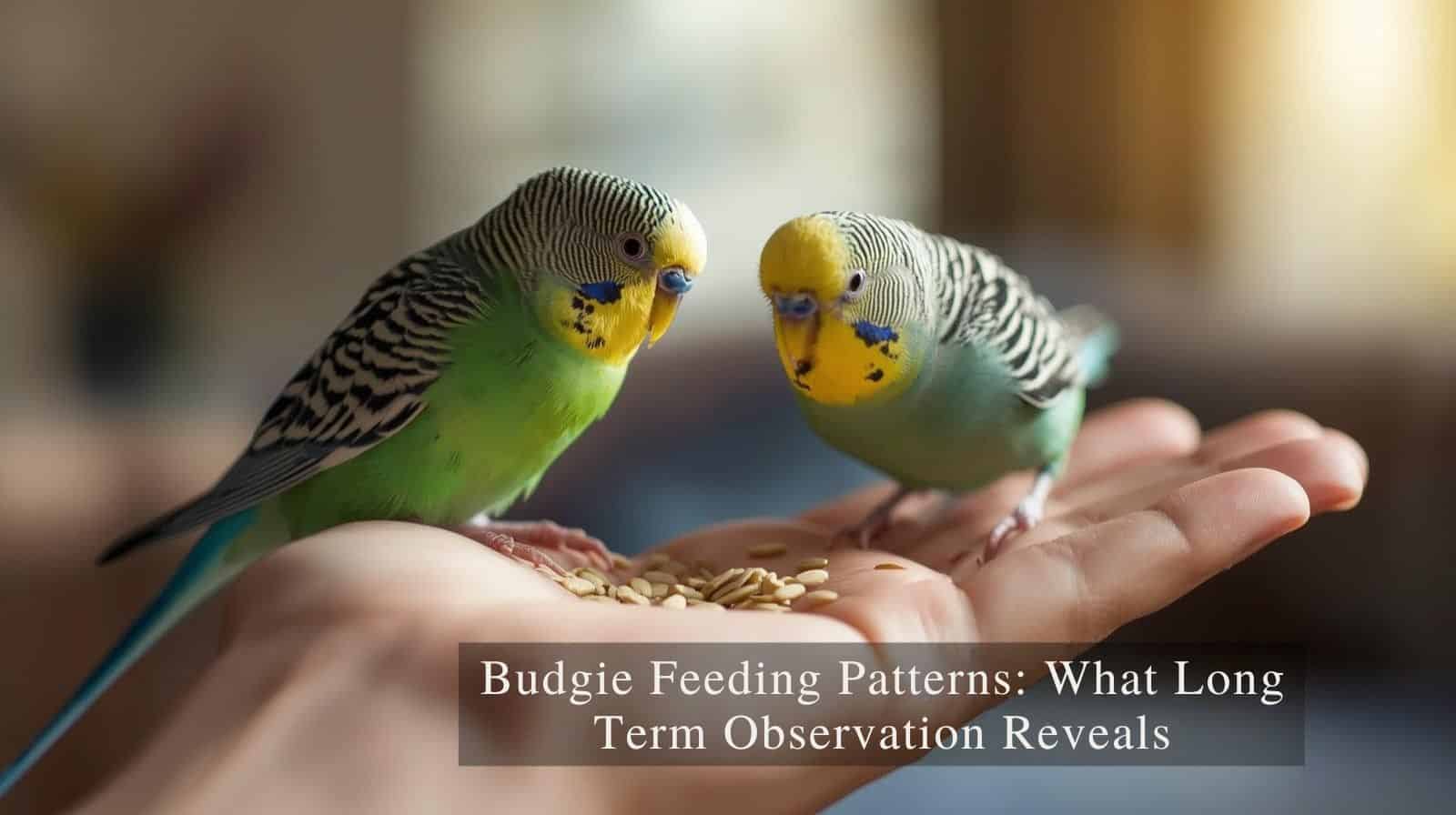
Essential Hand Feeding Formula for Healthy Baby Bird Growth

Tending a baby bird may prove to be a joyful yet sensitive process. Giving the right nutrition is key to keeping your baby bird healthy and active. Hand feeding formula, which is specifically designed to cover the baby birds’ nutrition needs from day 1 till the weaning stage. In this blog, we will talk about hand feeding formula. Why it is important, and how it supplies the best nutrition for baby birds.
Table of Contents
ToggleUnderstanding Hand Feeding Formula
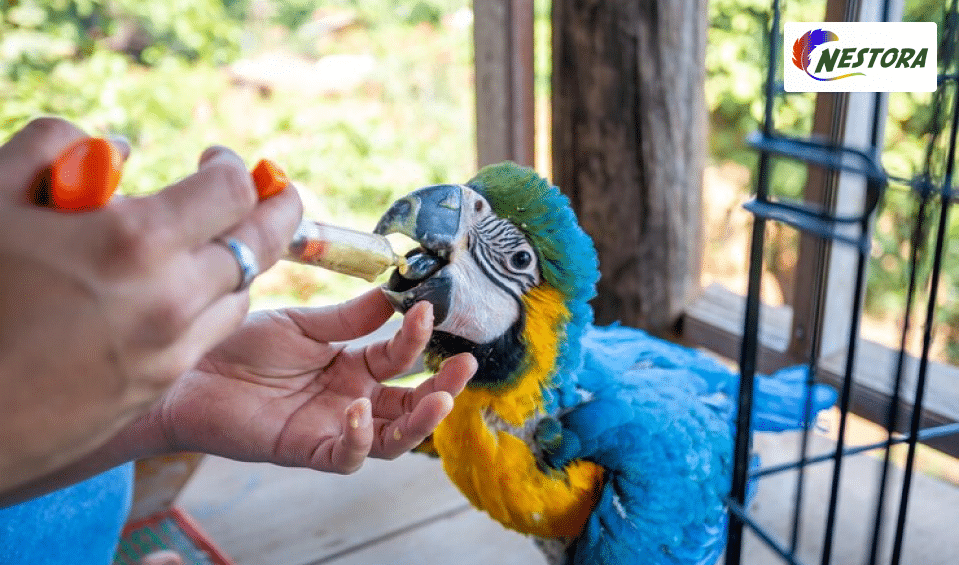
Bird-lovers, pet owners, and breeders need a hand-feeding formula for their baby birds.These little creatures, like youngsters of other species, need exceptional food.It helps them grow fast and adequately. The formula comes as a powder. Mix it with water, and it becomes a simple, healthy meal. This super-rich mix is made for ease of baby bird consumption.
The key benefit of using a hand feeding formula is that it provides essential nutrition from day one, supporting faster growth and healthy development. Additionally, the process of hand feeding strengthens the bond between the bird and its owner, making the bird tamer and trusting. Owners can closely monitor how much food their bird is consuming, allowing them to track their bird’s progress and ensure it is receiving the proper diet for optimal health.
Why Do Baby Birds Need Hand Feeding?
In the wild, parent birds are responsible for feeding their chicks by regurgitating food directly into their mouths. However, when birds are raised in captivity or under special care, such as in breeding programs or rehabilitation centers, bird hand feeding becomes necessary. Hand feeding is a way to ensure that baby birds are properly nourished or need extra attention due to health problems.
Main Pros of Hand Feeding Include :
- It is guaranteed that the bird gets enough growth and enough nutrients.
- It helps to have controlled feeding sessions; thus, malnutrition will be minimized.
- The caregiver and the bird are bonded together, which is a good condition for trust-building.
The Role of Bird Nutrition in Hand-Feeding Baby Birds
Proper nutrition is essential for a baby bird’s health and growth.During the early stages, a bird’s bones, muscles, and feathers are still developing, making it crucial that their diet provides adequate nourishment.This is where hand-feeding formulas play a crucial role, as they are specifically designed to meet the unique needs of baby birds.Hand-feeding formulas contain vital nutrients such as proteins, fats, vitamins, and minerals, which are essential for healthy growth and proper body functions.These nutrients not only support physical development but also strengthen the immune system and ensure organs function correctly. Additionally, many formulas are tailored to different bird species, ensuring their specific nutritional needs are met.For example, the formulas made for parrots may be different from those made for finches and other species because parrots have their specific dietary requirements.
Choosing the Best Hand-feeding Formula
The hand-feeding formula is of great importance. You should pick a product designed particularly for your bird’s species and stage of development.Many reputable brands manufacture hand-feeding formulas suitable for different types of birds, such as lorries, conures, parrots, cockatiels, and finches.
Factors to consider when selecting the right formula:
Protein content: Protein is an irreplaceable element for the growth and development of muscles, feathers, and skin.
Fat content: Fats must cover essential energy requirements. This is more important in birds at the early growth stage.
Vitamins and minerals: Choose a fortified formula. It should contain vitamins A, D, E, and K. Calcium and phosphorus are also needed to build the immune system and strong bones.
Bird adaptability: This refers to how well the baby bird accepts and enjoys the food. A formula that the bird readily accepts ensures that it will eat well and get the necessary nutrition for healthy growth.
Consistency: The formula should be easy to mix and have a smooth texture so that baby birds can digest it.
Nestora Handfeeding formula
Nestora Hand Feeding Formula is a carefully formulated, easily digestible instant mix designed to meet the daily growth needs of baby birds. Currently, Nestora offers two variants of hand-feeding formula: Health18 and Health19. Health18 is formulated explicitly for nectar-feeding birds such as Lories and Lorikeets, while H19 is formulated for high-energy-requirement birds such as Conures, Macaws, Electus, and African Greys.
Common Challenges and Tips for Hand Feeding
Hand-feeding baby birds is a crucial means of ensuring their well-being; however, it is also a source of difficulties. One common issue is making sure the bird does not aspirate (inhale) the food but rather swallows it only.
Acceptance: Some baby birds may refuse to eat the hand-feeding formula, making it difficult for owners to provide proper nutrition.
Mixing Consistency: Achieving the right consistency can be tricky. The formula must be thick enough for the bird to consume.
Temperature Sensitivity: Baby birds often prefer their food at a specific temperature. If the formula is too hot or too cold, they may refuse to eat.
Digestive Issues: Some birds may experience digestive problems if they are not introduced to the formula gradually or if the formula needs to be adequately mixed.
Health Concerns: If a baby bird is ill or not feeling well, it may refuse to eat, making it essential for owners to recognize any health issues promptly.
Hygiene: Proper cleaning and sanitizing of feeding equipment are essential to prevent bacterial growth, which can harm the bird’s health.
Species-Specific Needs: Different species of birds may have unique dietary requirements, making it necessary to choose the right formula for each type.
Tips for successful hand feeding :
Ensure that the formula is warmed to the right temperature. Baby birds cannot use formulas that are too hot or too cold since the temperature values may result in digestive problems. Use a gentle yet firm approach when feeding birds, as they are at a high risk of injury. It’s essential to ensure their safety while providing the right amount of food. Always be alert for signs of distress. If the bird appears to be struggling, pause the feeding for a while. If the situation doesn’t improve, consider consulting a veterinarian.
Conclusion: Hand Feeding Formula for Baby Birds
In conclusion, hand-feeding formula is essential for the nourishment of baby birds, especially those raised in captivity. By providing the proper nutrients through a high-quality formula, bird owners can ensure that their birds grow healthy and strong. Selecting the right hand-feeding formula and understanding how to mix and feed it properly are essential. With care and love, you can give your baby birds the nutrition they need to grow strong and healthy, helping them start their lives on the right foot for a bright future.

